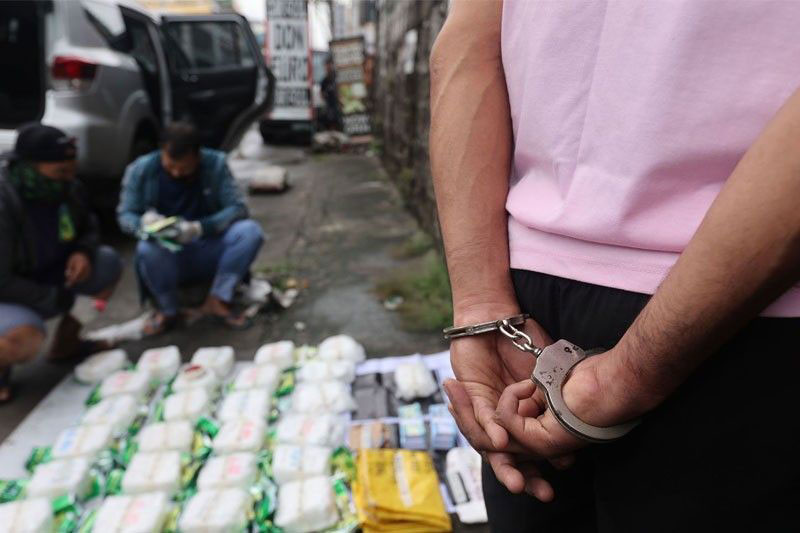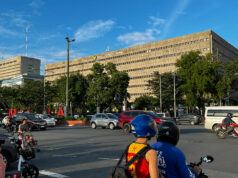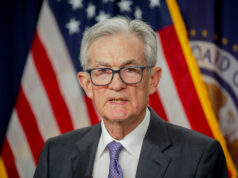Marcos told to work with ICC in probe of drug war

By John Victor D. Ordoñez, Reporter
THE BIGGEST labor coalition in the Philippines on Wednesday asked the government of President Ferdinand R. Marcos, Jr. to cooperate with the International Criminal Court’s (ICC) probe of his predecessor’s deadly war on drugs even if it means offending a political ally.
“The government’s decision to sever ties with the ICC is counterproductive as it sends a wrong message to the international community that justice prevailed under the previous administration,” Nagkaisa said in a statement.
“The president should have acted as a real statesman by ditching his fear of offending a political ally rather than lose face before the international community,” it added.
Carol Claudio, the executive assistant of Presidential Communications Office chief Cheloy Velicaria-Garafil, did not immediately reply to a Viber message seeking comment.
Mr. Marcos on Tuesday said the government would “disengage” with the ICC after the tribunal rejected its plea to suspend the probe of ex-President Rodrigo R. Duterte’s anti-illegal drug campaign.
“We don’t have a next move, that is the extent of our involvement with the ICC,” he told a news briefing. “That ends all our involvement with the ICC.”
Mr. Duterte canceled Philippine membership in the ICC in 2018. Mr. Marcos has said the Philippines would not rejoin the international tribunal, noting that the probe is a threat to Philippine sovereignty.
In an eight-page decision dated March 2, the court’s Appeals Chamber said the Philippines had failed to persuade the tribunal to suspend the probe.
The ICC said its investigation should not prevent the Philippines from continuing its own probe of rogue cops in the state’s deadly war on drugs.
Solicitor General Menardo I. Guevarra said the country is not legally and morally bound to cooperate with the international tribunal.
“This ruling will have serious and far-reaching consequences for our country,” he said in a Viber message on Tuesday. “It places us in the same class of rogue nations where the rule of law is not respected.”
The ICC in January reopened its investigation into killings and so-called crimes against humanity under Mr. Duterte’s drug war. It said it was not satisfied with Philippine efforts to probe human rights abuses during the period.
The Philippine government asked the chamber to suspend its probe of the drug war, citing the lack of authority on the part of the ICC prosecutor. It also said it encroaches on Philippine sovereignty.
ICC prosecutor Ahmad A. Khan on Feb. 16 told the ICC the Philippines had not raised new arguments to justify halting the probe.
Meanwhile, Senator Francis N. Tolentino said he would lawyer for Ronald M. dela Rosa, Mr. Duterte’s police chief and now a senator, in case he is prosecuted by the international tribunal.
“I accept the letter, the proposal of Senator Dela Rosa to lawyer for him,” Mr. Tolentino told a news briefing, based on a transcript sent to reporters.
“My role there would be to ensure the protection of Senator Dela Rosa not just within the confines of the ICC because we are claiming that they don’t have jurisdiction [over us], but even locally.”
He said he would seek Senate President Juan Miguel F. Zubiri’s permission to lawyer for Mr. Dela Rosa.
Mr. Dela Rosa has said the ICC’s probe was an insult to the Philippine justice system, adding he would rather be tried under local courts.
‘OBLIGATION’
Last month, Senators Robin C. Padilla and Senator Jose “Jinggoy” Estrada filed resolutions seeking the “unequivocal defense” of Mr. Duterte.
Former President and Pampanga Rep. Gloria Macapagal Arroyo and more than a dozen congressmen made a similar call on Feb. 16, saying the Philippines had a functioning justice system.
“The Marcos administration is bent on protecting his predecessor, Duterte, and some of his associates who are now in the government,” Arjan P. Aguirre, who teaches political science at the Ateneo de Manila University, said in a Facebook Messenger chat.
“This is used by Marcos in keeping the alliance with Vice-President Sara Duterte-Carpio intact.”
The United Nations (UN) Human Rights Committee has said the Philippines should comply with international human rights mechanisms and cooperate with its investigation.
The UN Commissioner for Human Rights last year said the government’s probe of human rights violations in connection with the drug war lacked transparency.
At least 6,117 suspected drug dealers had been killed in police operations, according to data released by the Philippine government in June 2021. Human rights groups estimate that as many as 30,000 suspects died.
Amnesty International said in a report on March 27 drug war killings continued under the Marcos administration.
There were 324 drug-related killings in the Philippines last year, 175 of which occurred after Mr. Marcos took office in July, it said, citing a study by the University of the Philippines and Belgium’s Ghent University.
The Philippines has accepted 200 recommendations from the UN Human Rights Council, including investigating extralegal killings and protecting journalists and activists.
“We believe that the investigation is not a violation of Philippine sovereignty, but rather an obligation under international law which forms part of the law of the country,” Nagkaisa said.



